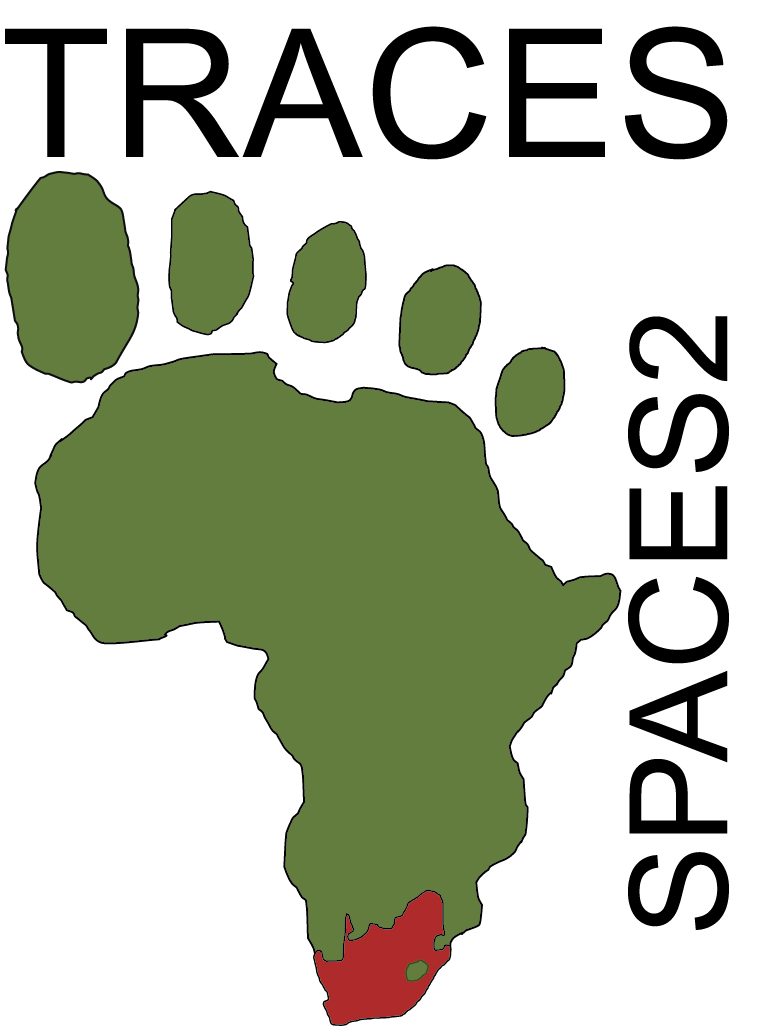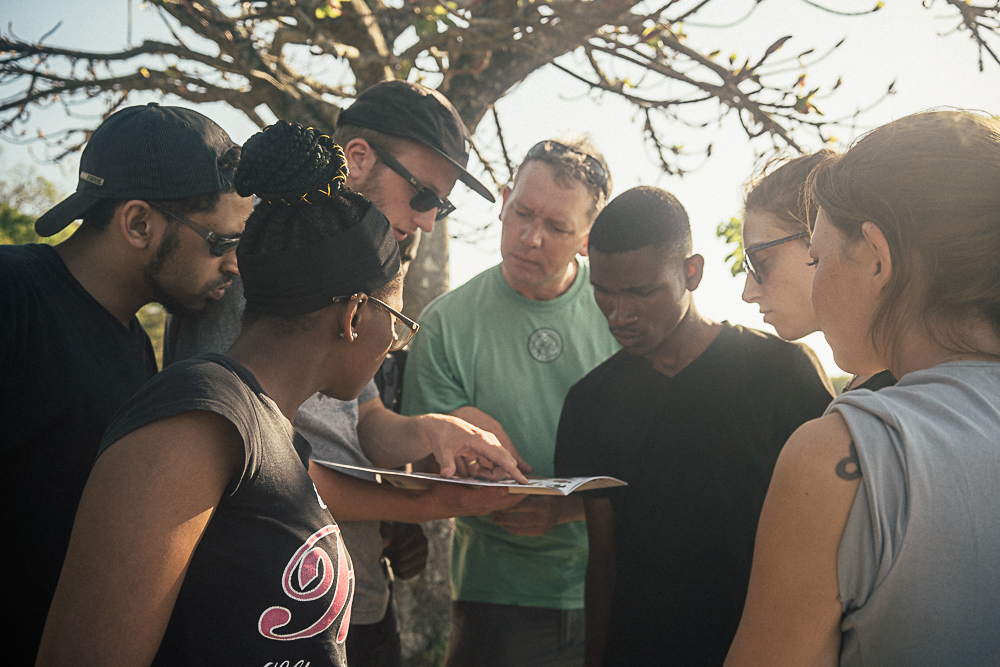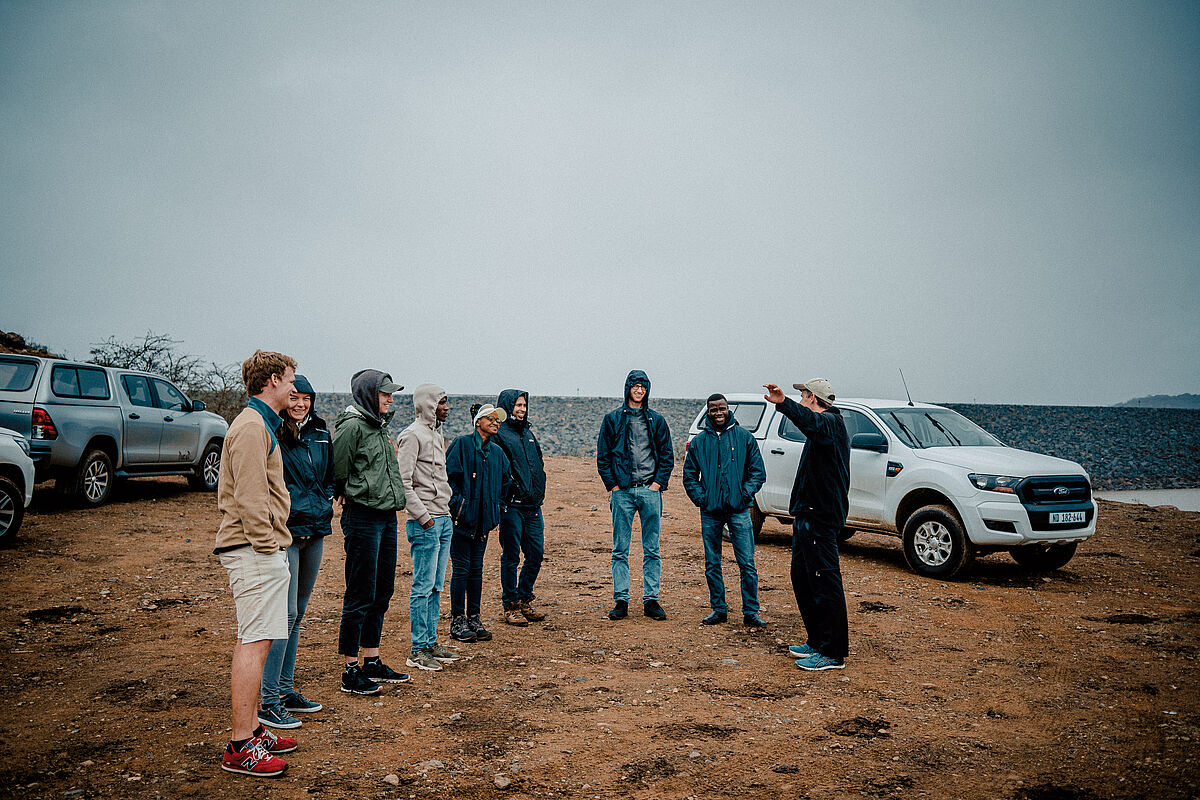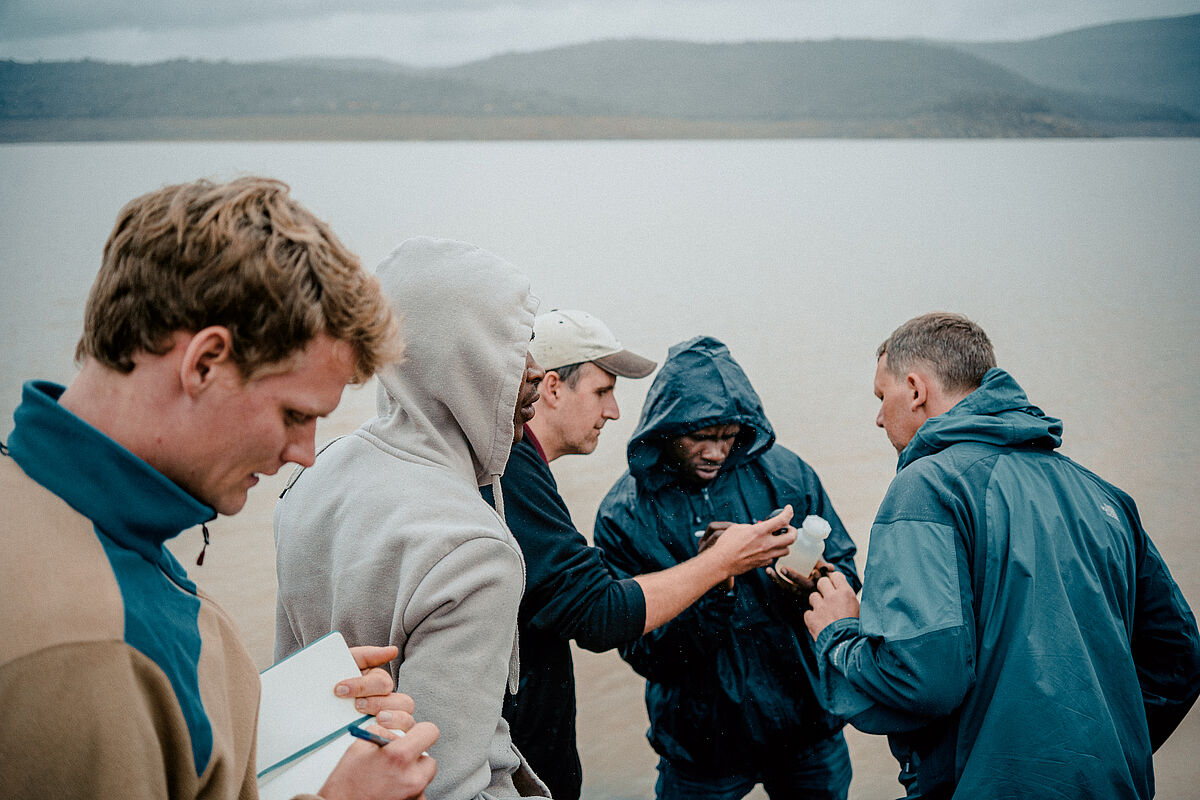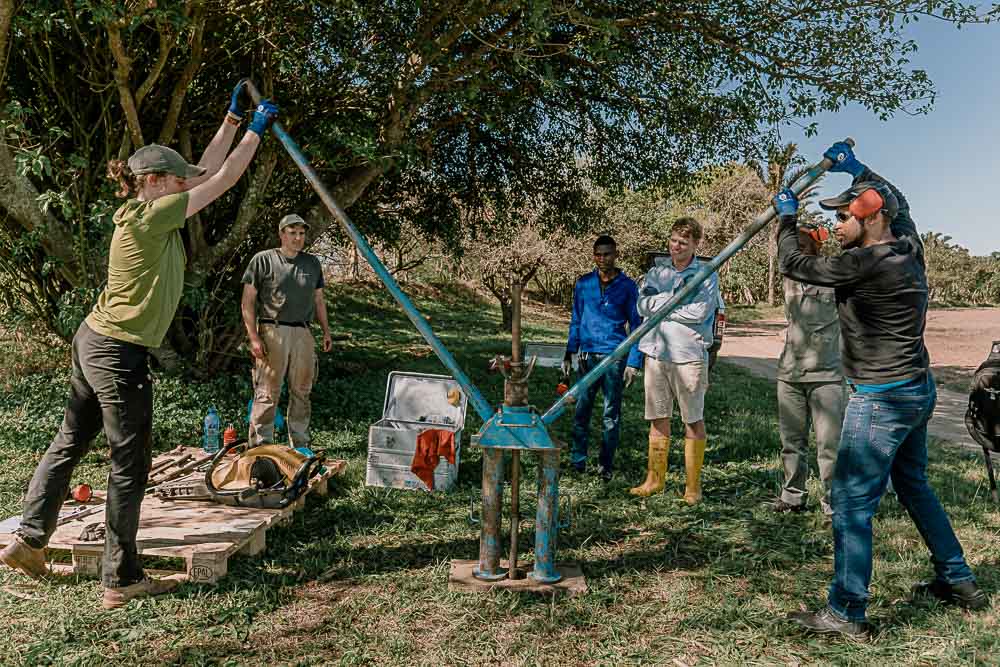Train-ME Summer Schools
Photos by Magnus Schult
Training School on Methods in Applied Earth- and Aquatic Sciences - Summer School 2019
Goals of the Summer School
The participants of the Summer School will be trained in bio- and geoscientific fieldwork sampling, applied in terrestrial and aquatic environments. Water samples are analyzed in the field or field lab with both inexpensive and simple methods such as e.g., pH- indicator paper or salinity refractometer, as well as more costly field methods, such as the application of handheld multi-parameter probe or portable spectrophotometers with analytical rapid tests. The biological field methods are going to include plankton hauls and benthos samples, while geo technique will focus on surface sampling of soils and sediments and also long sequences of deeper soil / sediment layers with different coring equipment.
The practical knowledge how to obtain reliable scientific sample material is fundamental to answer applied questions in environmental geology and ecosystem assessments. In addition, the participants are made aware of how environmental pollution can be detected to identify point sources or diffuse seepages of pollutants.
Furthermore, we want to encourage a professional and cultural exchange between African and German students. It is expected that the academic background of the participants originates from various disciplines in bio- or geosciences. This will inevitably stimulate discussions about research questions and specific sample collection strategies. As a side effect, it will raise the awareness of the specific needs of neighboring disciplines and strengthen individual problem solving skills.
Project description
Measurement techniques of physical and chemical parameters:
During the Summer School participants will be introduced to very simple but also more complex field techniques. Sensitive physical and chemical parameters are best measured in situ or immediately after sampling. Standard parameter such as temperature or pH value are rapidly measured in the field with cost effective methods or with the use of a multi-parameter probe to measure additionally conductivity and oxygen content from the same water sample. Nutrients with a quick turnover such as, nitrite, nitrate, ammonium and/or phosphate are analyzed with more expensive rapid tests and a photospectrometer.
Sampling of plankton and benthos:
Samples for analyzing living zooplankton (e.g., microcrustanceans) and phytoplankton (e.g., diatoms) are obtained using plankton nets of different mesh sizes operated from a dinghy. Benthos samples are retrieved through box grabs or dredges from the sediment surface. For spatial mapping of underwater vegetation units, we will use a high-resolution underwater camera.
Sampling of sediment sequences and soil surfaces:
The retrieval of surface samples is carried out from a boat with box grabs to retrieve a defined sediment aliquot or gravity corer equipped with plastic pipes to guarantee an undisturbed sediment-water interface. The latter methodis also applicable to recovered 150 cm of the uppermost sediment layers.
Coring techniques to recover longer and continuous sediment sequences on land:
Different coring devices exist to recover longer sediment sequences from land. We will demonstrate an array of common techniques such as, Russian peat corer, ramming corer and vibracorer. The participants will learn, which techniques are best for which substrate, and what the pros and cons are of each technique.
E-Learning:
The Summer School will be partly documented on video and cut for short films to highlight individual methods and make them available online as a reference for future work.
Cultural exchange:
To learn more about different cultures and to emphasis the importance of intercultural communication, we will dive into the cultural heritage of KwaZulu Natal highlighted by in the near-by Empangeni Museum. The participants will have the opportunity to join the local museum village, Shakaland. During the guided tour, the social system and way of life of the Zulus, their rites and customs are explained.
Target group
The summer school is aimed for students, doctoral candidates and junior scientists from natural and engineering disciplines. The participants do not have to have any special previous knowledge, but an increased interest in geosciences.
A successful application will include a present curriculum vitae, a letter of motivation and one reference letter by your supervisor or employee. It is advantageous to study or train in geo- and / or life sciences or engineering professions. Furthermore, a balanced number of German and African (South Africa, Namibia, Angola, etc.) participants and a gender parity distribution is a matter of course.
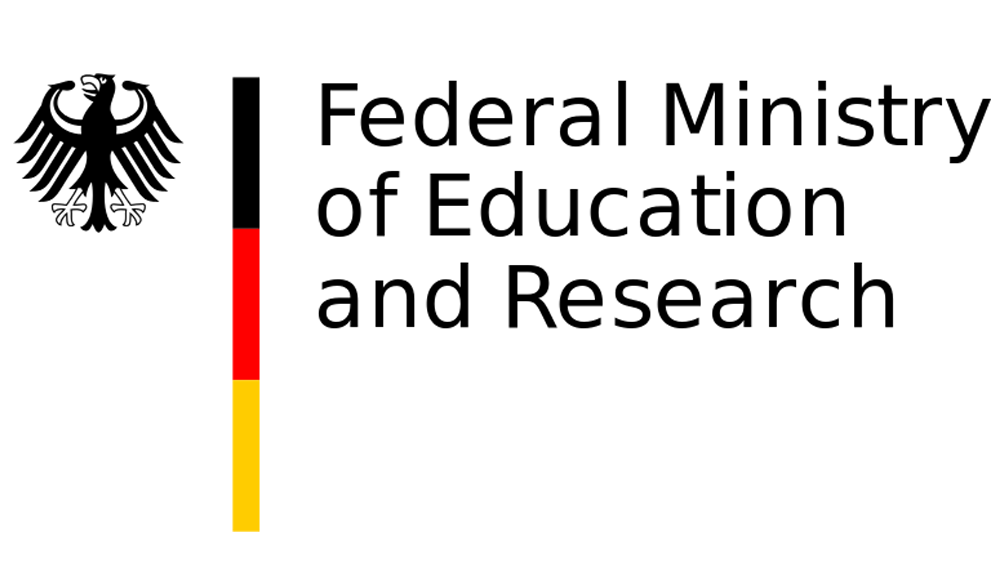

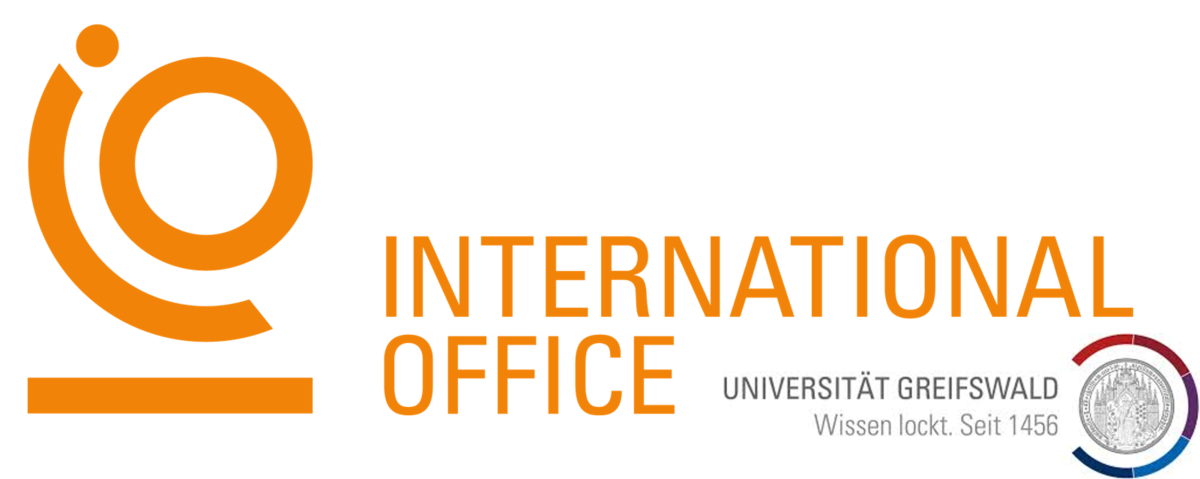
Contact:
Geoschool
geoschooluni-greifswaldde
Germany:
Prof. Dr. Torsten Haberzettl
torsten.haberzettluni-greifswaldde
Dr. Finn Viehberg
finn.viehberguni-greifswaldde
(South) Africa:
Dr. Jemma Finch
